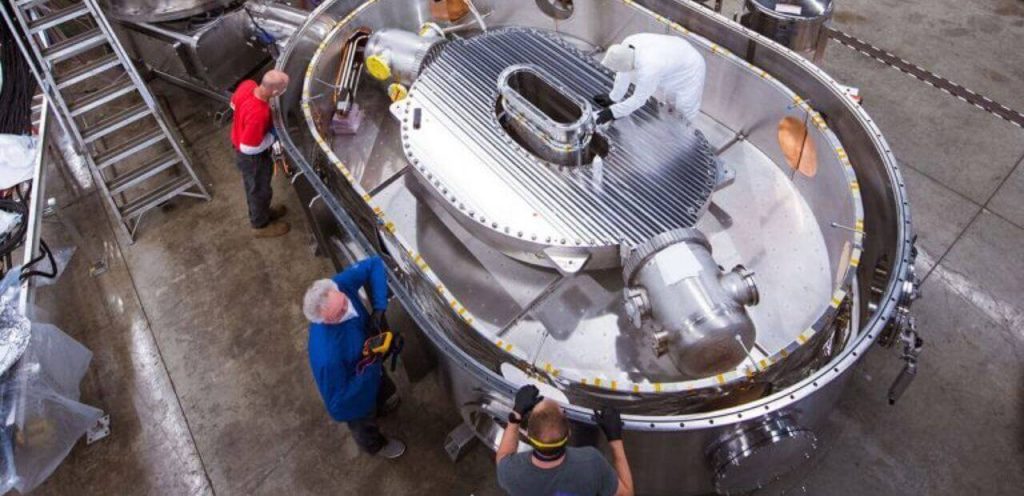The Diploma in Forestry program in Bangladesh provides technical forestry education. It trains students in sustainable forest management and conservation.
Embarking on a career in forestry can be both rewarding and impactful. Positioned at the intersection of environmental stewardship and resource management, a Diploma in Forestry from a Bangladeshi institution opens the door to extensive fieldwork and practical experience. This program typically spans two to three years and equips students with the knowledge to balance ecological sustainability with economic needs.
Graduates gain expertise in a variety of areas, including silviculture, wildlife management, and forest economics, making them well-prepared for careers in government forestry departments, non-governmental conservation organizations, and private sector enterprises. The curriculum emphasizes hands-on learning, with substantial field trips and practical sessions complementing classroom instruction. As Bangladesh focuses on preserving its diverse ecosystems while developing its forestry industry, trained professionals from diploma programs are crucial for achieving these objectives.
Entering The Green Arena
Choosing Forestry Education
Why choose a Diploma in Forestry? It’s the key to unlocking a rewarding career that blends passion with purpose. This diploma offers hands-on learning. Students don’t just read about forests; they delve into them. They learn techniques for conservation and sustainable management through practical experiences. Key benefits include:- Expert instructors guide you through the essentials.
- Fieldwork for real-world understanding.
- Certification that employers value.
Bangladesh’s Unique Ecosystem
Bangladesh boasts a vast biodiversity. Its forests are home to countless species. The Sundarbans, the largest mangrove forest in the world, is here. It needs protection from deforestation and pollution. The Diploma in Forestry trains individuals to be on the front lines of these efforts. This training ensures the survival of Bangladesh’s remarkable ecosystems. Highlights of Bangladesh’s ecosystem:| Ecosystem Type | Features |
|---|---|
| Mangroves | Home to Bengal Tigers and diverse marine life |
| Tropical Forests | Rich in flora and fauna |
| Bamboo Forests | Sustainable resource for livelihood |
Core Objectives Of Forestry Diplomas
Sustainable Resource Management
Students learn about sustainable forestry practices. They focus on how to use trees without harming the ecosystem. This includes planning how to cut and replant trees. They must think about people, animals, and plants that need the forest. Courses also cover how to deal with threats like fires and pests.- Maintain forest health for all living things
- Balance wood production with ecosystem care
- Plan for long-term forest survival
Conservation And Biodiversity
Protecting different life forms is vital. Courses teach students about plants and animals in the forest. They learn why each species is important. Students understand how to save habitats. Protecting water and soil is also a big part of the lessons. By the end, they will know how to keep the forest full of life.| Skill | Details |
|---|---|
| Species Identification | Learn to recognize diverse plants and animals |
| Habitat Assessment | Evaluate and enhance living areas for wildlife |
| Ecosystem Analysis | Study ecosystems to guide conservation efforts |
The Institutional Landscape
Key Forestry Institutes
Bangladesh boasts several dedicated institutions for forestry education. Notably, the Bangladesh Forest Research Institute (BFRI) and Institute of Forestry and Environmental Sciences (IFES) stand out for their comprehensive programs. Students receive hands-on training in state-of-the-art facilities, enriching their understanding of forest ecosystems.- Bangladesh Forest Academy: A prime center for initial forestry training.
- Forest Industries Development Corporation: Offers specialized courses in forest industry management.
- Sher-e-Bangla Agricultural University: Integrates forestry principles in its agricultural curriculum.
Accreditation And Standards
All forestry diplomas in Bangladesh must comply with the Bangladesh Technical Education Board (BTEB). This ensures students receive a recognized and standardized education. Courses span two years, focusing on practical and theoretical aspects of forestry.| Institute | Accredited | Program Length | Key Subjects |
|---|---|---|---|
| IFES | Yes | 2 years | Conservation, Silviculture |
| BFRI | Yes | 2 years | Wildlife, Forest Management |
| BF Academy | Yes | 2 years | Agroforestry, Ecology |
Curriculum Breakdown
Courses And Content
The course structure is a balanced mix of core subjects and interdisciplinary studies. Here’s a quick overview of the key topics covered:- Forest Biology and Ecology – understanding the living parts of forest ecosystems
- Soil Science – studying soil properties and their impact on forests
- Forestry Economics – analyzing economic principles within the forestry industry
- Forest Management – learning about sustainable practices and conservation
- Environmental Policy – an overview of policies that affect forest resources
Practical Skills And Fieldwork
Fieldwork is a major part of the diploma, melding theory with hands-on experience. Students gain practical skills through various activities:- Field trips to forests, plantations, and nurseries
- Mapping exercises using Geographic Information Systems (GIS)
- Species identification and ecological survey techniques
- Forest inventory practices
Modern Challenges In Forestry
Climate Change Impact
The climate crisis reshapes forests at an alarming rate. Extreme weather events, rising temperatures, and shifts in rainfall patterns all take a toll. These conditions can lead to loss of tree species, altered forest landscapes, and reduced habitats for wildlife. Understandably, this presents a massive hurdle for those immersed in the study of forestry.- Increased vulnerability to forest fires
- Spread of invasive species
- Disturbance in forest ecology and biodiversity
Deforestation Pressures
Deforestation poses another significant trial. As the population in Bangladesh soars, the demand for land, food, and resources climbs with it. Forest lands face clearing for agriculture, infrastructure, and urban development. This threatens not only the trees but the entire ecosystems they support.| Cause of Deforestation | Impact on Forests |
|---|---|
| Agricultural Expansion | Habitat fragmentation |
| Urbanization | Loss of tree cover |
| Illegal Logging | Decreased biodiversity |

Credit: www.facebook.com
Technological Advances In Forestry
Gis In Forest Management
Geographic Information System (GIS) has revolutionized forest management. Through interactive maps and data analysis, GIS aids forest managers in:- Mapping forest land use efficiently.
- Monitoring changes in forest cover over time.
- Planning afforestation and reforestation strategies.
- Tracking wildlife, to protect biodiversity.
Remote Sensing For Conservation
Remote Sensing is a technology that gathers information without touching the ground. It uses satellites and drones. This tech is essential for:- Assessing forest health from space.
- Detecting illegal logging activities.
- Mapping habitat for endangered species.
- Predicting wildfires, and managing them better.
Internships And On-the-job Training
Networking With Professionals
Building a robust network is essential for forestry students. Through internships, learners engage with experienced professionals. These interactions forge lasting professional relationships that can open doors to future employment opportunities. Students attend industry conferences, workshops, and seminars that enhance their networking scope.- Attend forestry-related events
- Meet industry experts and peers
- Join professional forestry associations
Real-world Experience
Gaining hands-on experience is irreplaceable. Through on-the-job training, students tackle real challenges. They apply theoretical knowledge to practical situations. This experience is gain in the diverse Bangladeshi forestry sector. Activities include:| Activity | Skill Gained |
|---|---|
| Forest Management | Conservation tactics |
| Wildlife Surveys | Data collection & analysis |
| Community Outreach | Communication & education |
Career Opportunities Post-diploma
Government Services
Forestry diplomats are invaluable in government services. Their expertise supports national parks, wildlife sanctuaries, and forest resource management. A table of specific roles is provided below:| Position | Department |
|---|---|
| Forest Officer | Forest Department |
| Wildlife Ranger | Wildlife & Nature Conservation Division |
| Environmental Officer | Department of Environment |
Non-profit Conservation Efforts
Diploma holders in forestry often find rewarding careers in non-profit organizations. They work towards habitat restoration and conservation education. Below is a list of potential roles:- Conservation Project Manager
- Community Outreach Coordinator
- Eco-Tourism Specialist
Further Education And Specializations
Advancing To Degree Programs
A diploma is a strong foundation. Bachelor’s degree programs elevate this knowledge. They offer in-depth learning. Universities in Bangladesh host various forestry-related degrees. Here’s how to progress:- BSc in Forestry: A natural next step to gain scientific insight.
- Integrated Courses: Combining bachelor’s with master’s degrees shortens study time.
- Enrollment Process: Requirements vary, but a diploma can give a competitive edge.
Research And Development
Passion for nature leads many to research. It fuels innovation in forestry. Specialized areas await exploration. These include:| Specialization | Focus Area |
|---|---|
| Conservation Biology | Preserving ecosystems and biodiversity. |
| Forest Management | Sustainable use of forest resources. |
| Wildlife Science | Studying animal populations and habitats. |

Credit: www.linkedin.com
The Economic Aspect Of Forestry
Forestry Products Market
Bangladesh’s forestry sector fuels various industries. This includes timber, paper, and medicinal products. Forestry generates income and jobs. It also promotes economic stability.- Timber is vital for construction and furniture.
- Paper industries rely on wood pulp.
- Forests offer medicinal plants used in pharmaceuticals.
| Product | Demand | Role in Economy |
|---|---|---|
| Timber | High | Construction Growth |
| Paper | Stable | Consumer Goods |
| Medicinal | Rising | Healthcare Support |
Tourism And Recreation
Forests attract tourists. They are a hotspot for recreation. Eco-tourism boosts local economies. It preserves nature.- Nature trails offer hiking and bird watching.
- Eco-parks provide family-friendly fun.
- Wildlife spotting enhances tourist experiences.
Community Involvement And Outreach
Engagement With Indigenous Peoples
Forestry programs in Bangladesh recognize the deep connection between indigenous communities and their lands. Strong engagement with these communities is a cornerstone. Students learn to collaborate, respecting traditional knowledge and practices.- Partnership Meetings: Regular gatherings build mutual trust.
- Joint Conservation Efforts: Projects unite students and tribes.
- Cultural Exchange: Exposure to indigenous customs broadens understanding.
Educational Programs For Public
Education extends beyond the classroom into the larger community. The Diploma curriculum includes outreach initiatives, aiming to raise public awareness about forestry conservation.- Workshops: Interactive learning for families on eco-friendly practices.
- School Visits: Introduce young minds to the basics of forestry.
- Community Planting: Encourage collective action for reforestation.
Innovations In Forestry Education
Online Learning Platforms
Forestry education in Bangladesh has embraced the digital age. Online learning platforms are revolutionizing how students engage with the material. Key features include:- Interactive modules: These enhance understanding of complex concepts.
- Video lectures: Experts share knowledge beyond textbooks.
- Discussion forums: Students and teachers interact in real-time.
- Remote assignments: These allow practical application of theories learned.
Simulated Forest Management
Bangladesh’s forestry education now offers Simulated Forest Management. This innovative approach uses technology to recreate forest management scenarios. Students gain hands-on experience without stepping into the wild. Benefits include:- Real-life simulations: Virtual forests mimic real-world ecosystems.
- Decision-making practice: Students learn to make impactful choices.
- Risk-free environment: They can experiment without harming actual forests.
- Immediate feedback: Allows for rapid learning and adaptation.
Policy And Legislation Influence
National Forestry Laws
National forestry laws set the ground rules for forest conservation and usage. Bangladesh has a range of laws evaluating and preserving its wooded lands.- The Bangladesh Forest Act (1927, amended in 2000) regulates forest resources.
- The Social Forestry Rules (2004) include community involvement in forestry.
- The Wildlife Preservation Act (2012) protects wild flora and fauna.
International Agreements
Bangladesh is part of major international agreements. These foster global forestry collaboration.- The United Nations Framework Convention on Climate Change (UNFCCC) addresses forest-related challenges and climate change.
- The Convention on Biological Diversity (CBD) promotes sustainable forest ecosystems and protects biodiversity.
- CITES, the Convention on International Trade in Endangered Species, regulates wildlife trade to avoid over-exploitation.
Environmental Ethics And Forestry
Balancing Economy And Ecology
In Bangladesh, forests are not just habitats for wildlife but also economic pillars for many. Foresters with a diploma navigate this tightrope daily. They ensure sustainable practices that support livelihoods and preserve nature.- Eco-tourism promotion
- Controlled logging for economic gain
- Reforestation efforts to maintain biodiversity
Ethical Dilemmas In Forest Management
Ethical challenges are part of forest management. Diploma holders face decisions that could harm or help the environment. Education provides the tools to make the right choice.| Issue | Ethical Solution |
|---|---|
| Deforestation | Implement sustainable methods |
| Wildlife Endangerment | Create protected areas |
| Community Displacement | Involve locals in forest management |
Forestry Entrepreneurs And Startups
Eco-friendly Business Ventures
Eco-friendly Business Ventures emerge from forestry education. Graduates innovate in reforestation, eco-tourism, and organic produce. They balance profit with planet wellness.- Reforestation projects that restore natural habitats.
- Startups specializing in eco-tourism promote conservation.
- Organic farms that focus on sustainable agriculture.
Innovation In Wood Products
Innovation in Wood Products thrives among forestry graduates. They design sustainable furniture and eco-friendly packaging.| Product | Material | Features |
|---|---|---|
| Sustainable Furniture | Recycled Wood | Low environmental impact |
| Eco-friendly Packaging | Biodegradable Materials | Reduces plastic use |
Public Awareness And Media
Role Of Media In Forestry
Media is a powerful ally. It can influence public opinion. Bold initiatives in forestry often go unnoticed. Media channels bring them to light.- Education: It educates on sustainable practices.
- Policy Promotion: Media urges policy support.
- Community Engagement: It encourages community actions.
Forestry Success Stories
Success stories inspire action. They show real results. Bangladesh has its fair share.- Community Forestry Initiatives that improved livelihoods.
- Success in the conservation of the Sundarbans.
- Wildlife protection stories that warm hearts.
Global Trends Affecting Forestry
International Demand For Wood
The global appetite for timber resources drives the forestry industry. A table can illustrate the rise in demand for wood:| Year | Global Wood Consumption |
|---|---|
| 2010 | 3.5 billion m³ |
| 2015 | 4.0 billion m³ |
| 2020 | 4.5 billion m³ |
| 2025 (Projected) | 5.0 billion m³ |
Biodiversity Conservation Efforts
The importance of biodiversity in maintaining healthy ecosystems is paramount. Forestry programs balance wood production and species protection. States and organizations lead initiatives to conserve biodiversity. An unordered list details some methods:- Protected area expansion
- Wildlife corridors
- Sustainable harvesting practices
- Community forest management
Adapting To Local Ecological Needs
Species-specific Conservation
Local wildlife faces challenges such as habitat loss and climate change. The diploma curriculum emphasizes species-specific conservation strategies. This tailors protection efforts to the needs of each species.- Native flora conservation to maintain biodiversity
- Threatened species management for species at risk
- Community education programs to raise awareness
Habitat Restoration Projects
Restoring degraded habitats is crucial for a sustainable environment. Diploma students engage in projects that rebuild natural landscapes.- Surveying damaged ecosystems
- Planning restoration activities
- Implementing habitat recovery plans
Networking And Professional Bodies
Forestry Associations
Joining forestry associations is key. These groups unite students, graduates, and experts. Members share knowledge and resources. They also learn from each other.- Meet peers: Build lasting relationships.
- Access resources: Journals, books, and case studies.
- Get guidance: Mentors offer insights and tips.
Conferences And Workshops
Events like conferences are where ideas and experiences merge. Workshops give practical skills. Here’s what prospective graduates can look forward to:| Event Type | Benefits |
|---|---|
| Conferences | Learn trends, research, and innovation. |
| Workshops | Hands-on skills, problem-solving abilities. |

Credit: m.facebook.com
Shaping The Future
Forestry And The Next Generation
In Bangladesh, the Diploma in Forestry brings fresh minds to the frontier of environmental conservation. Passionate youths are embarking on a mission to replenish and preserve our forests. Here’s what they stand to gain:- Comprehensive education on sustainable forest management practices
- Understanding of wildlife conservation and biodiversity
- Hands-on experience in forest resources utilization
- Research opportunities on ecological balance and climate change
Innovative Educational Strategies
The Diploma in Forestry program incorporates dynamic teaching methods. These strategies gear students towards effective learning. Examples include:| Strategy | Benefits |
|---|---|
| Fieldwork and Practical Sessions | Real-world forest management experience |
| Interactive Classroom Learning | Engaging discussions on latest environmental issues |
| Technology-Integrated Projects | Incorporation of the newest tech in forestry |
| Seminars and Workshops | Networks with professionals and experts |
Frequently Asked Questions On Diploma In Forestry In Bangladesh
What Is The Scope Of Forestry In Bangladesh?
The scope of forestry in Bangladesh is promising, with vast job opportunities in government and private sectors. It focuses on sustainable management and conservation of forest resources, vital for ecological balance and economic development.
What Are The Challenges Of Forestry In Bangladesh?
Forestry in Bangladesh faces deforestation, climate change impacts, illegal logging, and insufficient reforestation. Land encroachment and lack of sustainable management practices pose significant challenges.
What Are The Forests In Bangladesh Called?
The forests in Bangladesh are primarily known as the Sundarbans, which are mangrove forests. Other forests include hill tracts and sal forests.
Which Division Is Famous For Having Largest Forest Area In Bangladesh?
The Chittagong division is renowned for having the largest forest area in Bangladesh.
What Is A Diploma In Forestry?
A Diploma in Forestry is a vocational education program that focuses on teaching the principles of forest conservation, management, and sustainable use.
How Long Is The Forestry Diploma Course?
The Forestry Diploma in Bangladesh typically spans over a 2-year period, involving both theoretical and practical learning.
What Are The Entry Requirements?
Entry requirements usually include completion of secondary education or equivalent, with an emphasis on science subjects.
Conclusion
Embarking on a Diploma in Forestry within Bangladesh offers a pathway to environmental stewardship and sustainable management. This qualification equips students with crucial skills to protect and enhance our forests. For anyone passionate about conserving nature’s resources, it stands as an impactful educational choice.
Secure your future by fostering green growth and join the ranks of dedicated forestry professionals.









